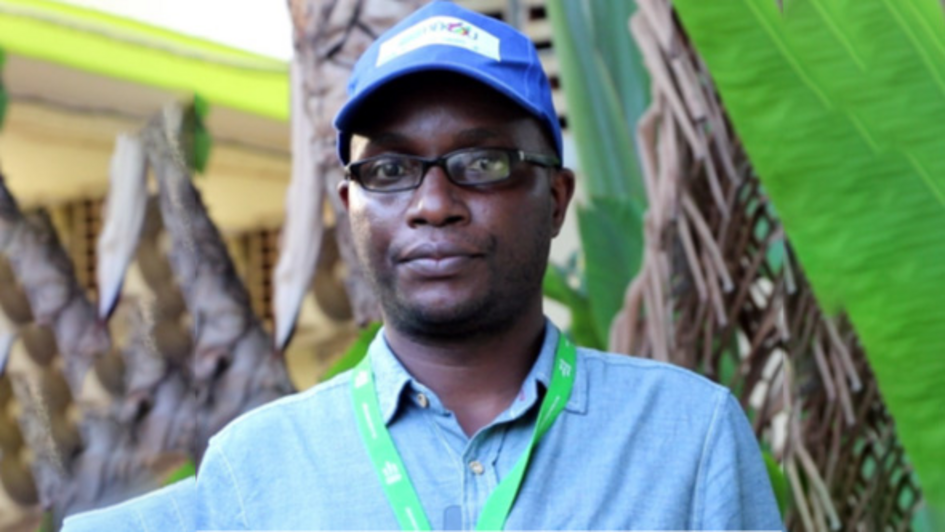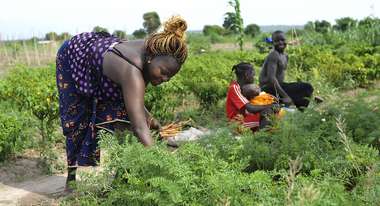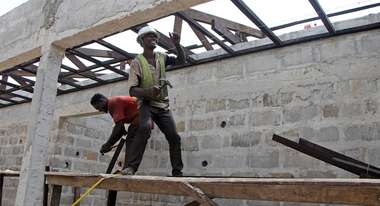Octave Bananeza satisfied with the results of the AID-FAPCE project
Country Director Octave Bananeza advocates for the consolidation of the huge achievements of the AID-FAPCE project.

Towards the end of the implementation of the AID-FAPCE Project “Yaka Kinda Yèrè” the Project Manager and Country Director of Welthungerhilfe, Emmanuel Octave Bananeza states that he is satisfied with the achievements and pleads for the consolidation of the gains. AID-FAPCE is a project financed by the European Union through the Bêkou Trust Fund to the tune of 6.6 million Euros, executed by a Consortium of INGOs Welthungerhilfe (WHH) - ACTED - COOPI - Concern Worldwide formed for the implementation of the project. Below is the exclusive interview granted by the Country Director to La Voix du Paysan Centrafricain (LVPCA).
LVPCA : Mr. Emmanuel Octave Bananeza, Good morning! You are the Country Director of the German NGO Welthungerhilfe (WHH) and Project Manager of AID-FAPCE. Tell us briefly what is the AID-FACE Project which is aligned with the slogan "Yaka Kinda Yéré".
Mr. Emmanuel Octave Bananeza (EOB): This project, entitled Integrated Support for the Development of Agropastoral Sectors for Job Creation (AID-FAPCE), is a project that came within the framework of the European Union's support to the Central African Republic through the Békou Fund, which supports many projects in several development areas. Our department of agriculture has benefited from this fund, and we have seen fit to implement this project in four prefectures of the CAR.
LVPCA: Why do you want to carry out this project in consortium?
EOB: When you work in a consortium, what we say here in CAR is: "maboko na maboko". When people hold hands, they can do better than when you are alone. Each NGO had a zone of intervention, that's why we are put together with ACTED, which is very present in the prefecture of Kemo, with COOPI which is present in the prefecture of Ombella M'poko and Lobaye, as well as on the site of Damara and Mbïki and also the NGO Concern Worldwide present in the prefecture of Lobaye at the level of Boda and in the Ombella M'poko at the level of Boali and finally WHH, we are in the city of Bangui and its surroundings. This is why we are together to set up this project.
LVPCA: What is the specific objective of this project?
EOB: The objective of this project was to contribute to the redevelopment of the economy of the Central African Republic, through the development of the value chain and the creation of employment for youth.
LVPCA: What difficulties did you encounter during the implementation of this project?
EOB: During the implementation of this project, first, it was the low level of our producers because the social fabric had collapsed with the crises in the country. And while we were taking a momentum for progress, we were confronted with the pandemic of COVID-19 which had a negative impact on our activities during the beginning of the second year of this project. Also, when we had the opportunity to consolidate the cements, we were also confronted with the crisis of December, January, and February.
But in general, the project has allowed us to set up several structures and we have been able to accompany the producers in strengthening and improving their living conditions. We thank the population that supported us and also the administrative and local authorities as well as the state partners.
LVPCA: What message can you bring to the beneficiaries and financial partners of this project?
EOB: The message I can bring to our beneficiaries, they are no longer beneficiaries but partners for the time being. It is to continue to move forward and not to lose these opportunities, but still to grow all these investments that have been made with them. And to our financial partners and also to ourselves, the needs are still enormous in the Central African Republic. We must continue to mobilize funds and consolidate what we have already done. I would also invite the preparation of future projects by different partners not to start the wheel, but to start where we have arrived to fructify and consolidate the achievements in sustainability.
Interview by Abraham AZOUYANGUI







